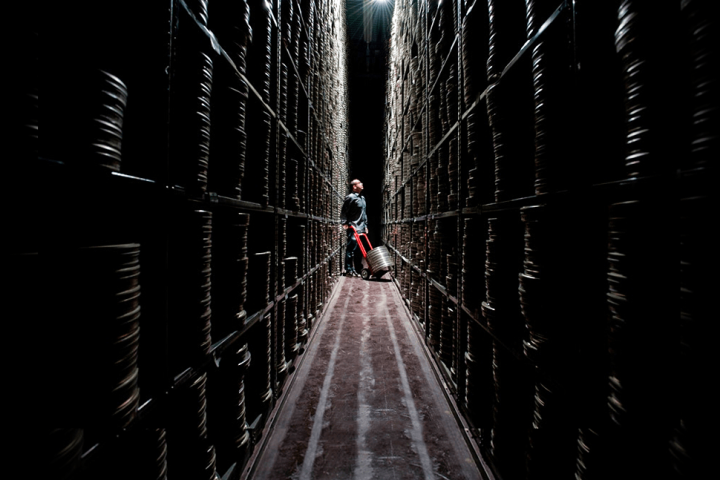
I’m talking about TV pilots, of course, the “test shows” that networks order before deciding which shows should become full-fledged series. For every pilot that eventually airs, there are three that never see daylight. Obviously networks can’t pick up every pilot to series, but why not at least make them available online, like Amazon does with all its pilots? Or air them as one-time specials? Are they mental?
As it turns out, technology may have made it easier to show pilots, but it hasn’t changed all the underlying reasons to keep them locked up. But that may change.
How the sausage used to be made
We live in an age where pilots face two fates: getting turned into a series or getting locked up in a vault. But it hasn’t always been that way. There used to be other options.
Seinfeld’s first episode aired in July 5, 1989, and the next episode didn’t air until May 31, 1990 — nearly eleven months later. That’s because NBC wasn’t convinced the pilot (neé The Seinfeld Chronicles) should be a series, so they aired it first as a test. Would people tune in? Would critics like it? (Answers: “Yes” and “Yes.”)
It also used to be common for networks to order “backdoor pilots” – TV movies that could easily be turned into weekly series if they were successful. Nowadays, when a network orders a backdoor pilot, it’s usually as a special episode of a series currently on the air (à la Chicago PD).
If it does well, you get a spin-off. If not, it’s just one episode out of 22. True backdoor pilots, like test airings, don’t really exist anymore.
Why all the secrecy?
Many of these pilots are actually quite promising. And expensive.
The unaired pilot of Fox’s Locke & Key, which got a very positive reception when it screened at Comic-Con, reportedly cost close to $10 million to produce. CBS’s recent Beverly Hills Cop pilot even had a role for Eddie Murphy – Murphy’s first scripted TV appearance in decades. That couldn’t have been cheap. Despite Murphy’s involvement, though, the show currently sits in a vault somewhere, unseen by human eyes.
If they’re costly to produce, often quite good, and highly promotable, why keep them locked up? The studios aren’t talking, but I have a few wildly speculative reasons.
- They want to protect their brands
Pilots are the research & development of television, and when it comes to R&D, TV studios are like Apple. Apple keeps its R&D locked down as tight as possible, not confirming the existence of new products until they are nearly ready-to-ship. It’s one of the ways Apple protects its brand, so they’re only associated with the working products currently on their shelves.
On the other hand, Amazon’s open pilot season makes it more like Google, a company that would rather have the excitement and press that goes with a tantalizing product announcement, even if said product is not quite ready for the masses – or ever released at all.
- They hope to “retool” pilots for future consideration.
For decades, once a pilot was passed on, it was d-e-a-d. All talent moved on to other projects, and the show was never spoken of again. That is no longer the case. Shows now get multiple chances to step to the plate.
Big Bang Theory got two chances to bat for CBS, first as a pilot in 2006, then again as a retooled pilot in 2007. Were those script and cast changes necessary to make it the long-running mega-hit it is today? We’ll never know. But because the changes certainly didn’t hurt, that show is now frequently cited as a reason to give pilots another go. One such example is NBC’s Mr. Robinson, starring Craig Robinson. NBC initially passed on the project 2013, but a retooled version is set to premiere this summer.
- Ego
Put yourself in the shoes of a TV network president. (Wow, these are some nice shoes!) You just passed on a high-profile project. Do you really want that project to get seen anyway, so the whole world can second-guess your decision?
- Some pilots really are that bad
OK, this isn’t speculative at all. Some pilots simply misfire on every possible level. Even the best scripts, with the most talented cast and crews attached, can turn out poorly. That’s why the pilot process exists. It’s not until you see every element together – casting, writing, direction, etc. – that you really know what you’ve got.
- Releasing them wouldn’t be profitable enough
I have a feeling that if more money could be had releasing unaired pilots – even the bad ones — we’d see it done way more often.
The third way
There is precedent for lifting the curtain on pilots. Warner Bros. put its unaired Aquaman pilot on iTunes back in 2006, after the CW declined to pick it up. Aquaman became an iTunes bestseller, and for a moment it looked like a new trend was emerging. A very brief moment. Few, if any, unaired pilots have made to iTunes since.
If anything, in the nine years since Aquaman, the networks and studios have doubled down on pretending like these unaired pilots don’t even exist. And this is while companies like Amazon are having success going in the complete opposite direction.
Amazon has made the release of all its pilots integral to its decision-making. It can do this because it has access to data that the broadcast and cable networks can only dream of. Thanks to its data-intensive business model, Amazon can track the activity of every single viewer, right down to the point when they lose interest and click away. Thanks to its online store, Amazon knows how popular the DVD sets of certain actors sell online. Thanks to the Internet Movie Database, which Amazon owns, it knows exactly how interested people are in the talent attached to their pilots — a metric that I believe is more important than Amazon lets on.
Amazon’s pilot competition is also a big marketing tool to attract subscribers. Like Netflix, Amazon can afford to take risks just for the overall publicity. That’s something that traditional networks don’t have the luxury of doing.
Let’s go dumpster diving!
Does that mean networks won’t ever host their own pilot competitions? No. Far from it. Pilots are still content, and content is king in Hollywood. It’s only a matter of time before a network president realizes she’s got all this produce sitting in the back of the grocery store, spoiling too soon, and decides to capitalize off of it.
Of course, the question then will be: Are we finally digging for lost treasure? Or are we just dumpster diving?
Either way, it’ll be good because then we, the viewers, can at least judge for ourselves.


